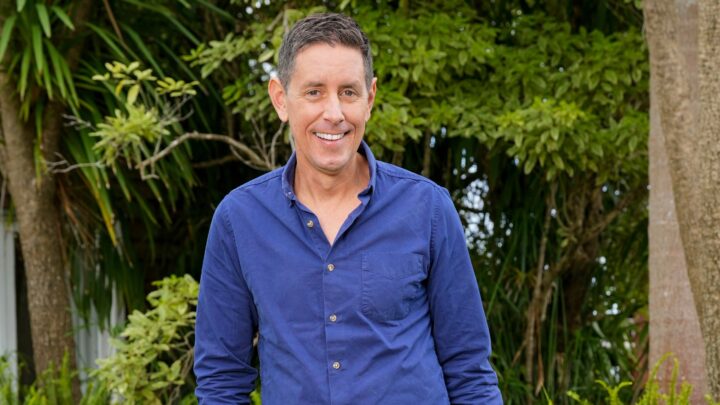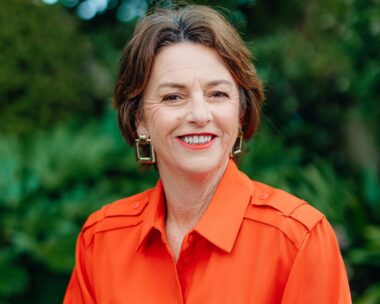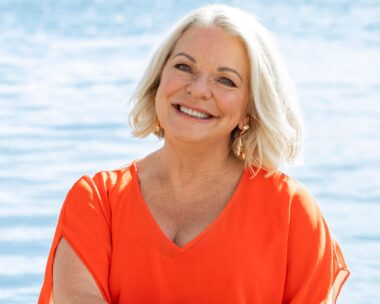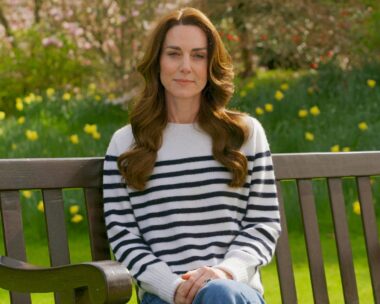Wallace Chapman has a dream. He longs to join his family on a bush walk in the Waitākare Ranges or a long stroll round his neighbourhood in suburban Auckland.
It might not seem like much to aim for, but for Wallace, the simple pleasure of walking has been out of reach for a very long time.
“I have a rare illness called Gaucher disease,” the 55-year-old broadcaster reveals. “It’s actually a blood disorder. It has limited my whole life.”
Wallace is missing an enzyme that breaks down fatty substances in the body, causing them to build up and damage organs, joints and bones. In this country, there are only a handful of sufferers and everyone experiences the condition differently. In Wallace’s case, it was his left hip that first started showing signs of a problem.

“Throughout my twenties, I started limping quite badly,” he recalls. “It got worse and worse until one day I couldn’t walk even a short distance down the road.”
At the time, he was a student at the University of Otago and a keen long-distance runner, so to begin with it was put down to a sporting injury. But then Wallace’s belly started swelling and doctors discovered that his spleen was massively bloated.
Rather than being a normal fist-sized organ, it had enlarged to the dimensions of a two-litre milk bottle. He underwent surgery to cut his spleen in half, and then doctors diagnosed him with Gaucher disease.
“For some people, the symptoms are very mild, others are in a wheelchair,” explains Wallace. “I’ve always considered myself relatively lucky in that it’s mainly affected just one hip. Still, mobility has been a serious issue for me and I’ve had to organise everything in my life around that.”

He recalls the early period following diagnosis as an often dark and difficult time.
“I dropped out of uni, not knowing what my future would be and became a bit of a recluse. I was on a disability benefit, had no energy, was in pain and was living in Dunedin in this dank, dark flat.
“I’d get up late every day, have a shower, eat toast and listen to the radio. I couldn’t really go anywhere and, in desperation sometimes, I’d put my walking stick onto my bike and manage to pedal for short distances. People must have thought I was an oddball.”
Wallace had recently experienced the sudden loss of his father, Wallace Senior, a Fijian minister who passed away from a heart attack at the age of 49.
“Dad had a very calming way about him, and there were some tough moments when I really needed and missed him,” he shares.

He’s not sure what would have happened if it hadn’t been for his mother Fay and a group of supporters who battled for him to receive regular infusions of a drug that helps stop the disease causing further deterioration.
“I had no energy to fight,” admits Wallace. “I’d almost become fatalistic about it. Mum was a homemaker, a minister’s wife who had just lost her husband, and suddenly she was flying around the country meeting with MPs, and navigating the world of rare disorders and international medicine. How she did that, I have no idea.”
He’s also thankful to a friend who encouraged him to do voluntary work for the student radio station. That led to his first job and gradually Wallace got his confidence back.
Since then, his career in the media has taken him to several other radio stations, including 95bFM, and onto television, where he presented political show Back Benches, and now to RNZ National, where he hosts The Panel.
“It’s been an extraordinary career and it was all thanks to that one nudge from a flatmate who said, ‘Come on, you have to do something. Why don’t you have a go?’”

There’s no cure for Gaucher disease but, as much as possible, Wallace hasn’t let the disorder hold him back.
“Learning to live with pain has been the main issue and how to hold down a job when pain is always there, like a constant background noise. Some people get very depressed, others self-medicate with things like alcohol, but I’ve never done that. I’ve channelled my energies into my career instead. When I’m busy and focused, I’m not in pain.”
Making sure he stays physically and mentally well is a priority. Four times a week, Wallace goes to the gym and says that has been a lifesaver.
“I also got into mindfulness way before it was in vogue. I take small moments in the day to calm down and reset my mind.”
Rather than dwelling on what he can’t do, Wallace has made the most of everything that he can. He laughs when he tells the story of how he and his wife Tabitha first met.

Wallace received an invitation to a party at Soul bar in Auckland’s Viaduct and, although he usually walked with a stick, he decided to leave it at home for that occasion. He got talking to Tabitha and was very keen to see her again, but her suggestion for a first date was a nice long walk.
“I said, ‘What about going to a movie instead?’ When she arrived at the cinema, I was sitting in the foyer and I didn’t have to walk anywhere. Then about three dates in, she noticed I was limping and I told her why.”
Inevitably, Wallace’s disability has restricted their life together. Holidays are difficult, for instance. And when their son Wallace Jnr, now six, came along, it was impossible to be a physically active dad.
“I’ve never been able to kick a ball around with him or play frisbee, that type of thing.”
Since Gaucher disease is hereditary, even the decision to have a child required careful consideration.
“We had reservations,” says Wallace. “But we talked about it with a specialist who said that the chances of little Junior having it is extremely small, so we’ve put that worry to the back of our minds.”

Wallace Jnr is a joy. His dad describes him as a sunny-natured, happy child who makes him smile every single day.
“At his age, I was very reserved, but he knows the whole neighbourhood!” Wallace laughs. “He’ll go past the barbershop and call, ‘Good morning, Lily.’ Past the cake shop, ‘Good morning, Priti.’ He’s got this sense of overwhelming positivity from the moment he wakes up in the morning. It’s extraordinary.”
The little boy is also drawn to his Pacific heritage.
“He really identifies with his Fijian roots,” says Wallace. His father’s family comes from Levuka, an historic town on the island of Ovalau.
One of the things Wallace is going to be able to do quite soon is take his family on a trip to connect with those Fijian roots.
His hip replacement surgery opens up possibilities for travel among the many activities he can now enjoy. Doctors had advised him to delay this for as long as possible, but in January it was judged time to have the procedure.
It’s been quite emotional, especially for Tabitha, who is 15 years younger than Wallace and has never known him free of disability.

“When I told her I was having the hip surgery, she cried,” he says. “For the first time in our old-fashioned relationship, we can dream about going for a long walk together or going camping. It’s a new future for all of us.”
Rehabilitation has been going well. Wallace is down to walking with one stick now and around the house can manage without it altogether. He’s also back at work hosting The Panel.
Still, Wallace admits that it’s taking time to adjust to living free of pain.
“It’s actually very strange,” he reflects. “When I stand up, I expect it to hurt and when I walk, I feel weirdly correct. I still can’t put on my socks. My hands can’t get anywhere near my feet.
“So my long, long-suffering wife has to do that for me. She says I had better behave or I’ll be going to RNZ in bare feet. That’s the lingering threat right now!”
The Panel airs at a new time slot of 6pm weekdays on RNZ National.
 Photos: Robert Trathen
Photos: Robert Trathen


